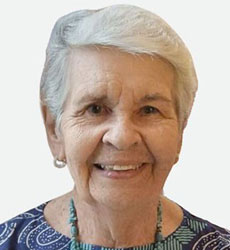Read this in The Manila Times digital edition.
MANY of us know Joy Virata but perhaps many more do not. So, who writes memoirs, the well-known or the not-so-well-known? Actually even the unknown should write memoirs. Memoirs bring back times and history, events and even mundane life chapters. They bring a certain flavor to memories of the past, a deciphering of truth that may explain the present and factual knowledge as experienced and now shared or echoed. Anyone, or rather everyone who has lived and can write, should write a memoir. It has many uses — knowledge, history, sharing, understanding, learning. And for those close to the writer like family and friends, a reaffirmation of having shared a life, putting it in context with one's own.
So, Joy Virata begins her memoirs with the story of her parents, an unusual pair of teachers, he Filipino and she British, born in South Africa. They meet in the US, marry and come to live in the Philippines just before World War 2. Her father was from Iloilo, Felipe Gamboa; her mother was Doreen Barber. They were both educators making a precarious living in pre-war Philippines. Race was not viewed as casually or logically as it is today. While mixed race marriages were not uncommon for centuries, it was usually a man who was white and a woman who was a native. The reverse was uncommon and therefore considered odd, if not irregular. In the same way, a white woman looking for a job at that time, could not be accommodated. She would have stood out, created too much of a sensation to be taken normally. And that is the world that Joy and her siblings were born into. The problem of belonging was the first major obstacle.
Continue reading with one of these options:
Ad-free access
P 80 per month
(billed annually at P 960)
- Unlimited ad-free access to website articles
- Limited offer: Subscribe today and get digital edition access for free (accessible with up to 3 devices)


